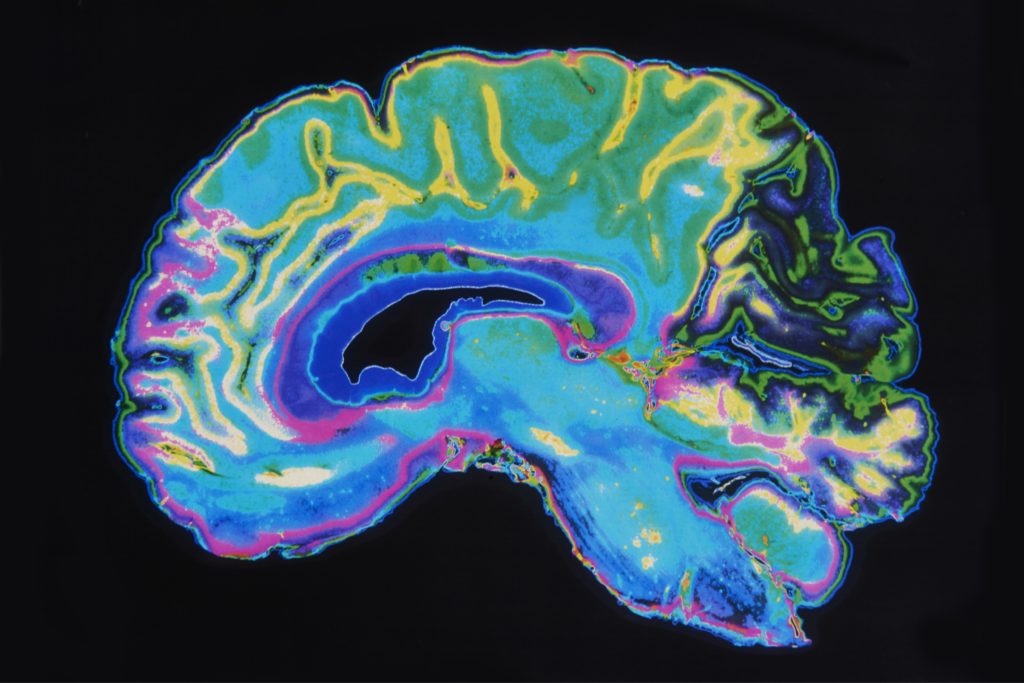Quick Hits
Daily brief research updates from the cognitive sciences

Teenagers’ brains are different – as many parents of teenagers notice quite intensely!
Adolescence is a critical period – we all know that. And the brain also goes through a number of changes, some of them well documented and others not. Adolescence is also a time when major mental illnesses such as depression and schizophrenia emerge but it also when risk-taking behaviour peaks.
Researchers at the University of Pittsburgh have now found compelling evidence of how this happens.
To do this the researchers around Maria Perica zoomed in on the prefrontal cortex of the brain. This region of the brain, at the front, your forehead, is considered the executive centre of the brain. The part that exerts control over other parts but also coordinates and consolidates lots of information. It is also an area involved heavily in decision-making.
Perica et al., used advanced imaging that gives double the resolution of normal imaging and compared the balance of two neurotransmitters in the fontal cortex of 144 adolescent and adult participants.
They specifically focused on the two main transmitters Glutamate and GABA. Glutamate is the brain’s man excitatory transmitter triggering action but also therefore involved in brain plasticity, triggering growth of the brain. GABA is the brain’s primary inhibitory transmitter, dampening and inhibiting transmission in the brain (also an essential function).
What did the researchers find?
They saw that the balance of glutamate increased through childhood and into adolescence before levelling off as adulthood approaches.
This suggest that this is putting the brain into a period of increased excitation and increased plasticity – the brain is at a stage of being able to sculpt and reform and also focus on things it may need in adulthood. This is also why exploratory but also risky behaviour increase at this time. Which as parents of teenagers know can also be challenging to deal with. But this is just nature preparing itself for adulthood.
There are also large risks such as the above-mentioned increased risk of mental illness.
This once again shows that teenagers behaviours are not just some strange psychological phenomenon but driven by a biological critical period of brain reorganisation – sometimes for the worse but mostly for the good.

Andy Habermacher
Andy is author of leading brains Review, Neuroleadership, and multiple other books. He has been intensively involved in writing and research into neuroleadership and is considered one of Europe’s leading experts. He is also a well-known public speaker, speaking on the brain and human behaviour.
Andy is also a masters athlete (middle distance running) and competes regularly at international competitions (and holds a few national records in his age category).
References
Maria I. Perica, Finnegan J. Calabro, Bart Larsen, Will Foran, Victor E. Yushmanov, Hoby Hetherington, Brenden Tervo-Clemmens, Chan-Hong Moon, Beatriz Luna.
Development of frontal GABA and glutamate supports excitation/inhibition balance from adolescence into adulthood.
Progress in Neurobiology, 2022; 219: 102370
DOI: 10.1016/j.pneurobio.2022.102370
More Quick Hits
Coffee Makes Business Teams More Effective
Quick HitsDaily brief research updates from the cognitive sciences just couldn’t resist reviewing this piece of research, from a few years ago, after I stumbled across this (likely because some background algorithm had recommended it to me based...
Caffeine Makes You More Prone to Impulsive Buying
Quick HitsDaily brief research updates from the cognitive sciences fascinating piece of research just published shows that drinking coffee makes you more impulsive. That means you are likely to buy more, and more items you actually don’t need....
Healthy Brains Are Hotter Than You Think
Quick HitsDaily brief research updates from the cognitive sciences hen we get sick we get a fever and we all know what our body temperature should be: around 37°C. Too much above that and we have a fever, and too much below and we risk...
Unpredictable Parents Disrupt Brain Circuitry in Children
Quick HitsDaily brief research updates from the cognitive sciences ntuitively we all know that good parenting is essential to kids’ healthy development. We all agree on that. But as soon as we try to define what good parenting is we then enter into...
A New Study on Inter-Brain Synchronisation
Quick HitsDaily brief research updates from the cognitive sciences n case you didn’t know it brain synchronisation (or inter-brain synchronisation) is a thing. And a pretty cool thing. This happens when two, or more, people do similar things...
Unique Social Genes in Human Beings
Quick HitsDaily brief research updates from the cognitive sciences ne differentiating factor with human beings is our pro-sociality. This means we are a social species, and this sociality is seen in our ability to empathise, be socially tolerant,...






